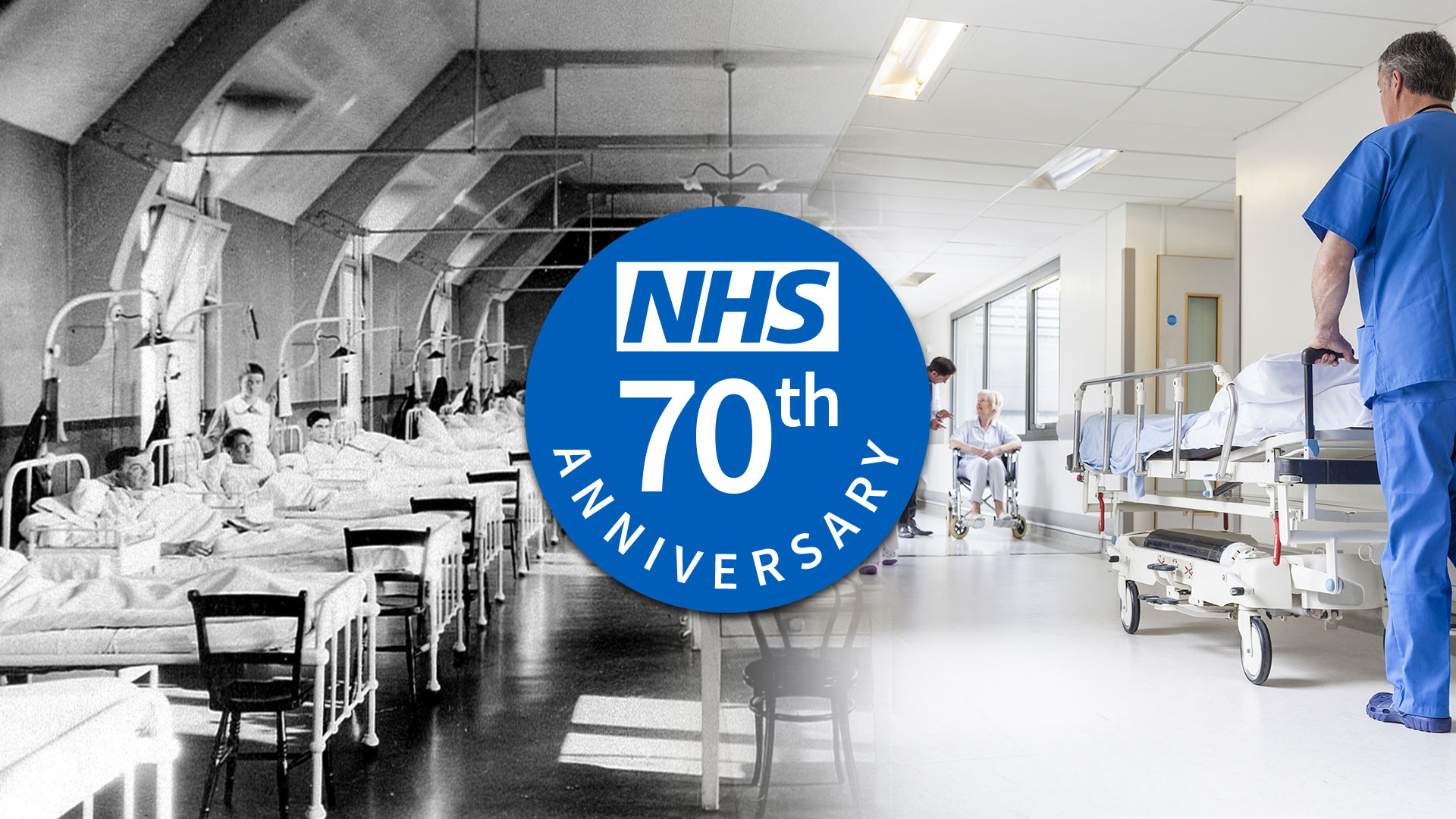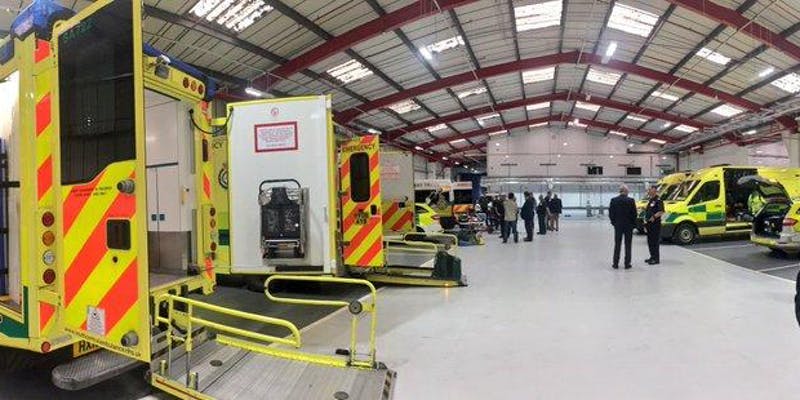
NHS at 70!
July this year will see the NHS turn 70, a momentous milestone for a service still driven by its founding principle of free healthcare for all.
By Alison Dando
Just a few short years after the end of the Second World War, the arrival of the National Health Service saw the start of long-lasting health and social reform in the UK. Never before had completely free healthcare been made available on the basis of citizenship rather than payment, and the introduction of the NHS effectively transformed the lives of millions.
Before 1948, thousands of people died every year from what are now treatable diseases such as tuberculosis, diphtheria, pneumonia and polio. With the introduction of the NHS, quality healthcare in Britain became a right, not a luxury and in turn, the National Health Service became an enviable world-first.
Adapting
From its earliest days, to today, the National Health Service has come a long way, evolving, adapting and responding to the ever-changing needs of the population. Over the last seven decades, the NHS has played a key role in the improvement of diagnosis, treatment and care, often pioneering in medical technology and innovation. Many of the diseases prevalent in 1948 have largely been eradicated, and advancements in surgical procedures, patient care and public health mean we are living longer and healthier lives. Yet its services are needed just as much as ever.
As it prepares to celebrate its 70th anniversary, the National Health Service continues to face challenges, not least fuelled by a growing – and ageing – population. But the NHS, along with its dedicated employees who work tirelessly to deliver its services, remains a source of national pride. As one of the main architects of the NHS, Aneurin Bevan, said: “It [the NHS] will last as long as there are folk left with the faith to fight for it.”
Today, the NHS is the UK’s largest employer, with over 1.2 million staff working in more than 350 varied careers, from the clinical and nursing professions to administration, logistics, IT, research and community care. However, with an estimated 100,000 job vacancies currently putting a strain on some of its services, the NHS is now looking to the ex-Forces community to help fill the gap. While almost 45,000 of those NHS vacancies are within medical, nursing and midwifery, there are also shortfalls in the number of allied health professionals, including radiographers, occupational therapists, paramedics and healthcare scientists as well as in non-medical roles such as IT, estates and clinical coding, to name just a few.
Military experience
In January this year the NHS launched a new initiative – Step into Health – which aims to tap into the experience of former Military personnel to help fill non-medical as well as medical roles. A joint initiative with The Royal Foundation and Walking with The Wounded, Step into Health provides the Armed Forces community with career and development opportunities within the health service. Expanded from an initial pilot scheme, Step into Health also offers open days, work placements and apprenticeships.
According to NHS Employers, which acts on behalf of NHS trusts in England and Wales, there are currently around one million working-age Veterans living in the UK, with an estimated 16,000 additional men and women leaving the Armed Forces every year.
To the 241 NHS trusts and community health providers around the country, the commitment, team ethic, leadership and transferable skills that the Forces are renowned for could well prove invaluable. NHS Employers’ Chief Executive, Danny Mortimer highlighted a recent survey conducted amongst NHS trusts that revealed a real appetite within the health service to recruit from the Armed Forces, saying: “The survey’s findings mirrored what the private sector had always said: that ex-Service men and women come ready with vital skills such as leadership, adaptability, resilience, and the ability to work well under pressure.”
Transferable skills
The NHS has widely acknowledged the transferable skills, personal qualities and shared values the Forces can bring and proactively encourages ex-Military personnel to consider a career change to one of its many professions. So much so, that the NHS has pledged its support to the principles of the Armed Forces Covenant. Enshrined in law in 2011, the Armed Forces Covenant is the nation’s promise to ensure that those who Serve, or who have Served, in the Armed Forces and their families are treated fairly and get the right support, including education, health and employment, wherever and whenever it is needed.
“There are now 70 NHS trusts in England that have signed the Armed Forces Covenant. All NHS organisations are covered under the Community Covenant that is signed by local authorities on behalf of their geographical region, however these 70 organisations have made individual public pledges.” Mr Mortimer added.
The professional parallels between Forces personnel and health care professionals are clearly not lost on the NHS and by signing up to both the Covenant and the Step into Health initiative, health trusts are helping to cement their reputation as an Armed Forces ‘employer of choice’.
Which means that, as the NHS prepares to mark its platinum anniversary and looks towards its eighth decade, for Veterans with transferable skills, relevant qualifications and training, or a personal aptitude and motivation to retrain, the NHS could well be the route to a highly rewarding second career.
Take you first step to a career in the NHS
Interested in finding out more about NHS career opportunities for ex-Armed Forces personnel? Check out the Step into Health website: www.militarystepintohealth. nhs.uk
Whether you are interested in catering, maintenance, administration, fi nance, communications, management, or a role in one of the clinical services, the Step into Health programme could be the first move towards a new civilian career in the NHS.
A joint initiative with The Royal Foundation and Walking with The Wounded, Step into Health provides the Armed Forces community with career and development opportunities within the health service.



